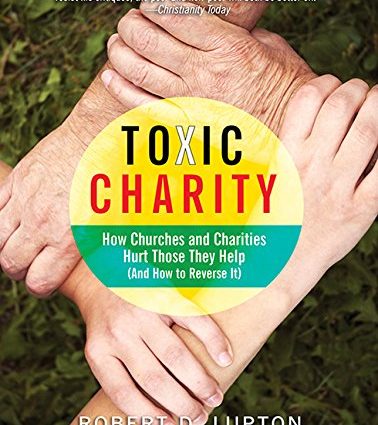Putting pressure on pity, blaming others for being healthy and prosperous is bad form among those who professionally help people. What is toxic charity and how to recognize it, explains Masha Subanta, director of the Kind Club Foundation.
«Toxic» charity becomes when someone begins to «do good» at someone else’s expense, manipulates to use other people’s resources, not paying attention to the feelings of others. Let’s take a closer look at what it manifests itself in.
1. You are told that you should help. No one owes nothing to nobody. When you help, not because you feel obligated or afraid of censure, but because you sincerely want to, only such help is valuable.
Calls on social networks “do not be indifferent”, “we are people or who”, “it is unforgivable to pass by” do not attract, but repel. In fact, they are a covert manipulation of emotions and feelings. We are shamed and forced to do things we don’t want to. But it can hardly be called charity.
2. They count your money and advise what to do with it. Instead of drinking a cup of coffee, buying yourself another skirt, or taking a vacation, you should donate your money to something that «really matters.» Important to whom? For you? And is it possible to call a good deed if your desires are depreciated in the process?
We all work to live better. It is logical that we want to replenish the resource and reward ourselves for our efforts. It’s okay to want something for yourself too.
The main thing is that the person actually likes to help. Then he’ll do it all over again
Kindness begins with a person and goes from person to person. Therefore, it is important that the one who gives should care not only about others. Otherwise, there are two ways ahead: either he, too, will soon need help, or he will leave charity, despairing of helping everyone.
To help to the best of your ability when you feel the need, to listen to your feelings in order to choose the most comfortable way to help — this is a more careful approach to charity.
3. You constantly feel guilty. You are told that you are not helping enough. Could have been more, once in your life you are more fortunate. You begin to limit yourself in everything, but the feeling that you are not trying very hard does not go away.
The main thing is that the person actually likes to help. Then he will do it again and again. Check yourself: when you do a good deed, you should feel good in your soul.
4. They refuse to provide you with documents. In response to quite reasonable questions — where you can see the documents and what the amount of the fee is, what they plan to do for this money and how it will help, whether there are recommendations from doctors — accusations fly at you: “What are you finding fault with?”
Are you being insulted, shamed that you are a soulless person and are finishing off with your questions an already inconsolable mother, an unfortunate orphan, a poor invalid? Run away, no matter how sorry the child / kitten / adult. Those who organize the collection are required to show and explain where your money will go.
Charity is voluntary and deeply personal. This is our relationship with the world, and in any relationship it should be good
Draw conclusions as soon as you hear: “They didn’t donate a single ruble, but they make claims”, “How long did you transfer? Let me return this money to you so that you don’t worry so much.”
However, it may not come to this — often after the first question you will be sent to the ban.
5. You did not ask for advice, but you are taught how to help correctly. Do you help children? Why not animals? Animals? Don’t you feel sorry for people? Why don’t you go to orphanages?
When “sofa” experts write to me that I help the wrong way and the wrong ones, I answer briefly: open your fund and help as you see fit. Charity is voluntary and deeply personal. This is our relationship with the world, and in any relationship it should be good, otherwise what is the point in them?










